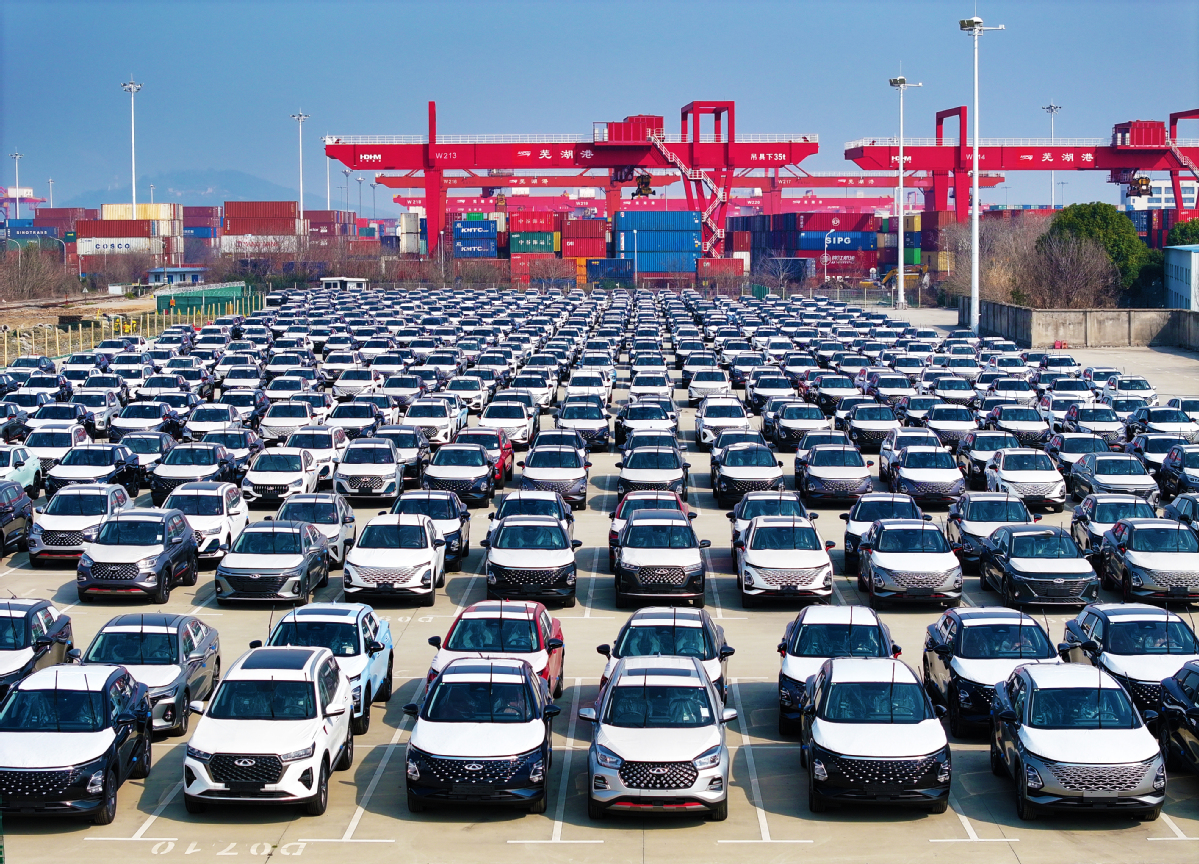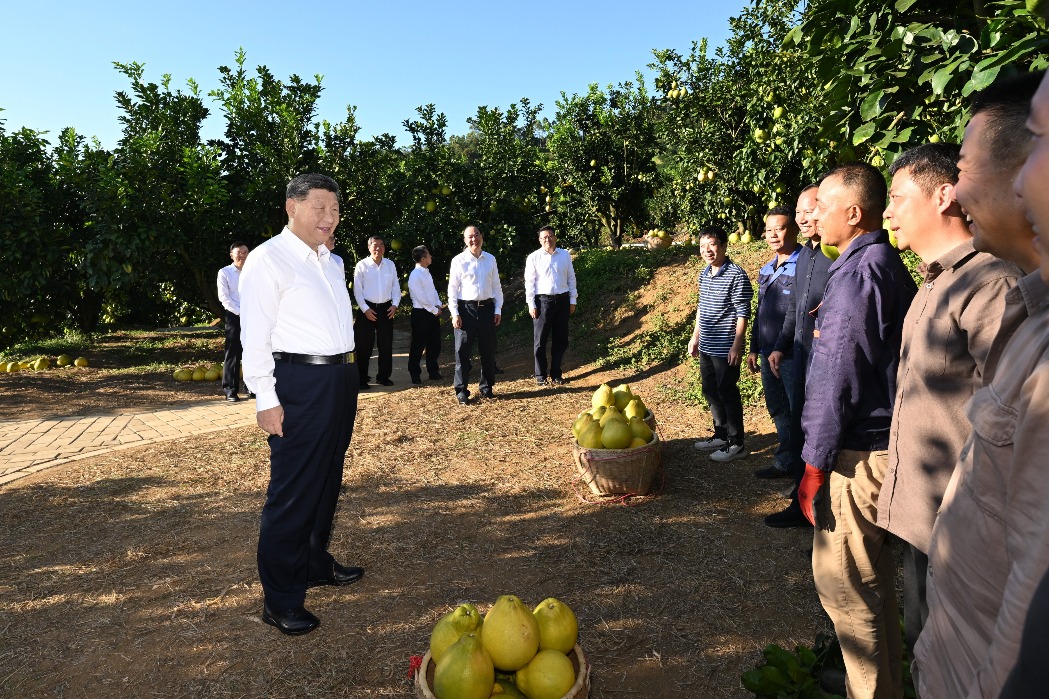Correcting trade imbalance through cooperation


Geopolitical tensions are rising, with the United States and some other Western countries criticizing China for its rising trade surplus against other countries and its so-called industrial overcapacity. These issues are but snapshots of the broader structural challenges facing the global economy.
Amid the sluggish global economic recovery, uneven technological innovation and supply chain disruptions, countries across the world face formidable challenges. Now more than ever, collaboration is essential. Rather than provoking confrontation, countries need to work together to resolve their differences and encourage positive competition that leads to shared prosperity.
The road to economic recovery is uneven across countries because every economy grows at a different pace. This has created trade imbalances. During the COVID-19 pandemic, for example, many countries scaled up production to stabilize their economies, resulting in extra capacity and trade imbalances, which take time to correct. China scaled up its production in the manufacturing sector to meet the global demand during the pandemic, which caused its current account surplus as a percentage of GDP to rise to 2.0 percent in 2021. But with economies across the world recovering, the figure dropped to 1.4 percent in 2023, and it is continuing to decline, highlighting the market's self-correction capability.
China's achievements in sectors such as electric vehicles, EV batteries and solar photovoltaic equipment — or the "new energy trio" — reflect the positive impact of a cooperation and coordination of policy support and market competition, not government distortion. China has always adhered to the principle of competitive neutrality, which has enabled multinational corporations such as Tesla and Eco Green Energy to freely operate and compete against domestic enterprises in China.
Consumer-targeted green industry subsidies have facilitated China's transition to renewable energy in line with its commitment to realize its two climate goals. In fact, China's renewable energy sector has created opportunities for growth for domestic and overseas enterprises alike. According to the International Renewable Energy Agency, China's renewable energy development has reduced the solar photovoltaic installation cost per kilowatt-hour by 86 percent and the levelized cost of electricity by 90 percent from the 2010 levels. As the International Energy Agency's Global EV Outlook 2024 report says, the demand for EVs is booming, but the journey to replace internal combustion engines in economies such as the European Union and the US is long drawn.
Addressing the global trade imbalance and excess capacity problems requires dialogue and cooperation among countries. But countries like the US are taking protectionist measures such as imposing extra tariffs on Chinese products, instead of seeking solutions to the problems. By doing so, they are undermining the chances of resolving even the fundamental issues.
Given these facts, China must maintain its strategic composure, promote cooperation without shying away from competition, and avoid unnecessary confrontation. To begin with, China should continue to champion economic globalization, oppose trade protectionism, and name and shame countries that misuse anti-subsidy and tariff measures, because reinforcing China's stance on open trade is crucial for countering protectionist rhetoric.
The country should take measures to align its policies with international policies, and review its policy on subsidies. By taking countermeasures against unjust sanctions and offering relief to affected Chinese businesses, China can deter other countries from resorting to protectionist measures.
It should also proactively engage with the World Trade Organization, so as to better safeguard national interests using established multilateral mechanisms. By supporting domestic companies facing investigations from the US or other Western countries, and helping them to consult international trade experts to strengthen their cases, China can defend its businesses and ensure they have the resources to counter discriminate policies.
To effectively address global trade imbalances, China should use its major player status in the global economy to promote openness and inclusivity, and more actively engage in global economic rule-making, and facilitate WTO reforms, especially in critical areas like subsidies and competition policy. And by expanding free trade and investment agreements in fields such as the digital economy, artificial intelligence and intellectual property rights, China can build consensuses on, and drive forward, new global standards.
Through the diversification of its import sources, particularly in sectors such as advanced manufacturing, high-quality agriculture and electronics, China can meet its growing consumer demand while creating growth opportunities for both domestic and overseas enterprises. In areas such as healthcare, telecommunications and cultural products, it can attract more foreign investments and facilitate mutual growth by further opening up the economy.
Moreover, by encouraging Chinese companies to deepen their engagement with quality-driven Belt and Road projects which prioritize technology and management expertise, China can benefit the global market. By boosting localized operations to help companies to better serve and integrate into host countries, it can help them sharpen their competitiveness in the global market. And by working alongside host nations, Chinese companies can help bridge the technological gap and foster green transition in other countries, thus benefiting the global economy.
China's efforts to correct the trade imbalance will help bolster its role as a stabilizing force in the global market. By increasing transparency, practicing competitive neutrality and promoting cooperation, China can foster an inclusive global economy that aligns with the interests of all countries, facilitates shared growth, and positions itself as a model for cooperative progress.
The views don't necessarily represent those of China Daily.
The author is a research associate at the Institute of World Economics and Politics, Chinese Academy of Social Sciences.
If you have a specific expertise, or would like to share your thought about our stories, then send us your writings at opinion@chinadaily.com.cn, and comment@chinadaily.com.cn.

































